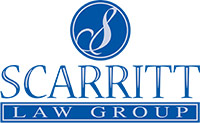Types of Claims
In cases involving unfair trade practices, the specifics can vary widely, but common issues include false advertising, deceptive pricing, and bait-and-switch tactics.
Some examples of unfair trade practices include:
- False Advertising: When a business makes false or misleading claims about its products or services, it engages in false advertising. For instance, if a company advertises a product as being “100% organic” but it contains synthetic ingredients, this could be considered an unfair trade practice.
- Deceptive Pricing: If a business misleads consumers about the price of a product or service, it is practicing deceptive pricing. An example would be a store that advertises a discount but charges the full price at the register, or uses hidden fees that significantly increase the total cost.
- Bait-and-Switch Tactics: This occurs when a business advertises a product at a low price to attract customers, but then pressures them to purchase a more expensive item. For example, if a car dealership advertises a car at a very low price but, upon inquiry, claims the car is unavailable and pushes a more expensive model, it could be engaging in a bait-and-switch tactic.


